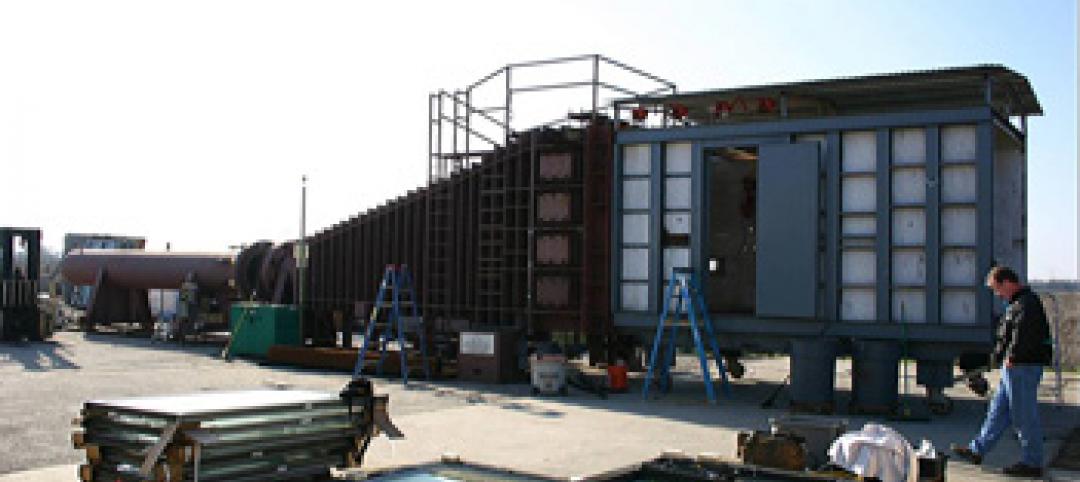The construction industry and real estate development could be hampered by the U.S. Congress’s failure to renew the Terrorism Risk Insurance Act (TRIA).
Insurance industry experts say without federal terrorism reinsurance in place for 2015, resulting canceled property/casualty insurance coverage and market chaos could be disruptive to the economy.
"A major terrorist attack occurring without a TRIA law on the books will be far more disruptive to the U.S. economy than one where TRIA is in place," saidInsurance Information Institute President Robert Hartwig. “Terrorism insurance policies are going to lapse in 2015, and insurers will be under no obligation to renew them, adversely impacting the construction, energy, and real estate industries, among others.”
Federal terrorism reinsurance had helped stabilize the market in the wake of the Sept. 11, 2011 terrorist attacks, and it had been renewed several times since. There was widespread bipartisan support for TRIA renewal, but retiring U.S. Sen. Tom Coburn, an Oklahoma Republican, held up passage. Coburn objected to a measure included in the bill that would have set up the National Association of Registered Agents and Brokers, an entity that would have potentially bypassed state regulators.
One positive sign: A.M. Best said it “has determined that no rating actions on insurers previously identified as over-reliant upon [TRIA] are necessary at this time.” The rating agency said it reviewed action plans from insurance carriers addressing what they would do if TRIA was not renewed and concluded that “sufficient mitigation initiatives were developed to avoid a material impact on a rating unit’s financial strength.”
(http://www.insurancejournal.com/news/national/2014/12/18/350561.htm)
Related Stories
| Nov 20, 2014
Revamped zoning is transforming several New Jersey downtowns
The zoning policy shift could produce the biggest transformation of North New Jersey’s downtowns since the arrival of malls pulled shoppers away from town centers in the 1960s and 1970s.
| Nov 20, 2014
ANSI approves 2015 Wood-Frame Construction Manual standard
The American Wood Council's 2015 “Wood-Frame Construction Manual for One- and Two-Family Dwellings” (WFCM ) has been approved as an American National Standard by the American National Standards Institute (ANSI).
| Nov 17, 2014
AAMA releases new blast hazard mitigation specifications for vertical fenestration systems
This document provides a guide for manufacturers, architects/specifiers, contractors, and building owners for specifying types of systems and services to meet the requirements of blast hazard mitigation.
| Nov 17, 2014
National Roofing Contractors Assn. offers guide for LEED v4 provisions
National Roofing Contractors Association has released LEED v4: Roofing-related Provisions, a document that examines the roofing-related provisions of LEED v4.
| Nov 14, 2014
Army net-zero initiative moving past pilot stage
The U.S Army's ambitious net-zero initiative has had several successful pilot trials, and planners are prepared to expand the nine-part demonstration field to scores of other Army facilities.
| Nov 14, 2014
Former U.S. Treasury Secretary Paulson works to upgrade China’s building codes
Former U.S. Treasury Secretary Hank Paulson is today focused on making new construction in China more energy efficient by working with leaders to upgrade building codes.
| Nov 14, 2014
California aims for 20% reduction in water consumption by 2020
California’s comprehensive new water use plan makes conservation a priority, reinforcing a 2009 plan to reduce statewide per capita water consumption by 20% by 2020.
| Nov 6, 2014
Demountable structural steel could up the ante on sustainability
Demountable structural steel assemblies would be a greener way to make use of steel in the construction industry than recycling.
K-12 Schools | Nov 6, 2014
New Sandy Hook school features could influence security standards
The design of the new Sandy Hook Elementary School on the site of the 2012 Newtown, Conn., school shooting features enhanced security measures—some subtle and others more prominent.
| Nov 6, 2014
OSHA seeking input on electrical standards
The Occupational Safety and Health Administration (OSHA) is reviewing electrical standards for the construction industry to make sure proper safeguards are in place as electrical wiring is being installed and maintained.













